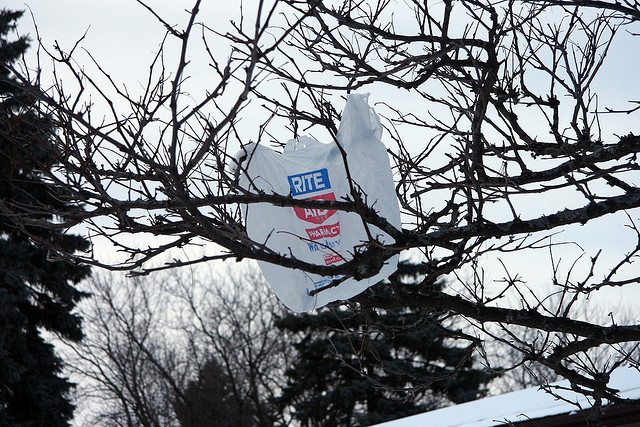Five Cent Bag Fee Passes


The City Council on Thursday narrowly passed a controversial shopping bag fee aimed at curbing the use of disposable grocery bags in favor of reusable, environmentally-friendly materials.
Proponents of the bill, which passed 28-20, say it will rein in the ubiquitous use of shopping bags — that pile every year in landfills — and bring the New York in line with similar laws passed in cities like San Francisco and Washington D.C.. The law, expected to go into effect in October, imposes a five-cent fee on paper and plastic shopping bags. There are some exceptions: The fee does not apply to bags used by pharmacies, produce and liquor bottles. Soup kitchens and groceries bought with food stamps are also exempt.
“This was an incredibly difficult decision to make as a leader of a very diverse community with multiple perspectives both for and against the bill and in the end, I believe that humanity’s greatest responsibility is to be the caretakers of the earth across all racial, cultural, economic and class lines,” said Council Member Laurie Cumbo of the 35th district, which includes Fort Greene and Clinton Hill.
“In city after city, a small fee has been overwhelmingly successful in getting people to bring their own reusable bags when they shop — across lines of race, ethnicity, age, income and neighborhood — and generated a 60% to 90% drop in plastic bag waste,” said Council Member Brad Lander of Park Slope, who helped introduce the bill.
Lander also thanked Council Member Cumbo for the town hall she hosted on Tuesday.
However, the fee drew almost universal scorn from southern Brooklyn lawmakers, who said it would disproportionally impact low-income and elderly New Yorkers who can’t afford to shell out a nickel for every grocery bag.
“It adds up,” said Council Member Chaim Deutsch, who voted against the fee. “Put away a nickel or a quarter everyday and see how much you have at the end of the year. People are already having a hard time making ends meet.”
Council Member Mark Treyger agreed, calling the fee “a tale of two environmental policies” because high-end grocery stores like Whole Foods already reward customers who bring reusable bags.
“Unfortunately, we do not have a Whole Foods in our community. One can safely assume which areas have Whole Foods stores and which don’t. For residents of Southern Brooklyn, this is not an equitable solution,” he said in a statement.
There’s still hope that plastic grocery bags won’t go the way of the subway token. State Senator Simcha Felder, who as a council member voted against a six-cent bag fee touted by former Mayor Michael Bloomberg, has introduced a bill to prohibit municipalities from setting bag fees, the New York Times reports.
Felder told the Times the fees are “nothing less than a tax on the poor and the middle class — the most disadvantaged people.”
Lawmakers who voted against the bill also noted the fee goes directly into the pockets of retailers, rather than being collected by the city and used for public benefit.
Writing in the Yeshiva World News, Council Member David Greenfield said “the bag tax now under consideration in New York is, by design, a massive giveaway by politicians to wealthy business owners.”
“While five cents for a plastic bag may not sound like much to the types of people who are supporting this legislation, the fact is that there are many families in New York for whom every nickel counts,” he wrote.
However, activist Jennie Romer stressed that “the City and non-profit groups will work together to get sturdy reusable bags into the hands of people that need them.”
Additional reporting by Justin Fox.




